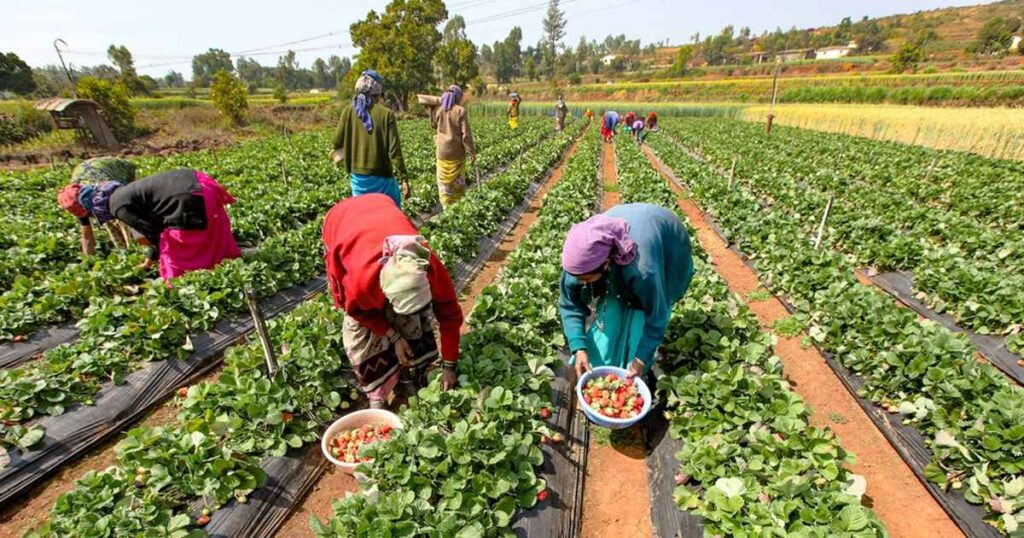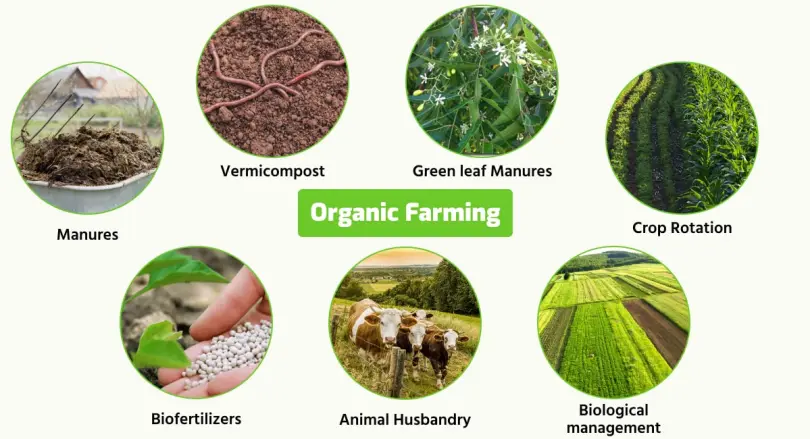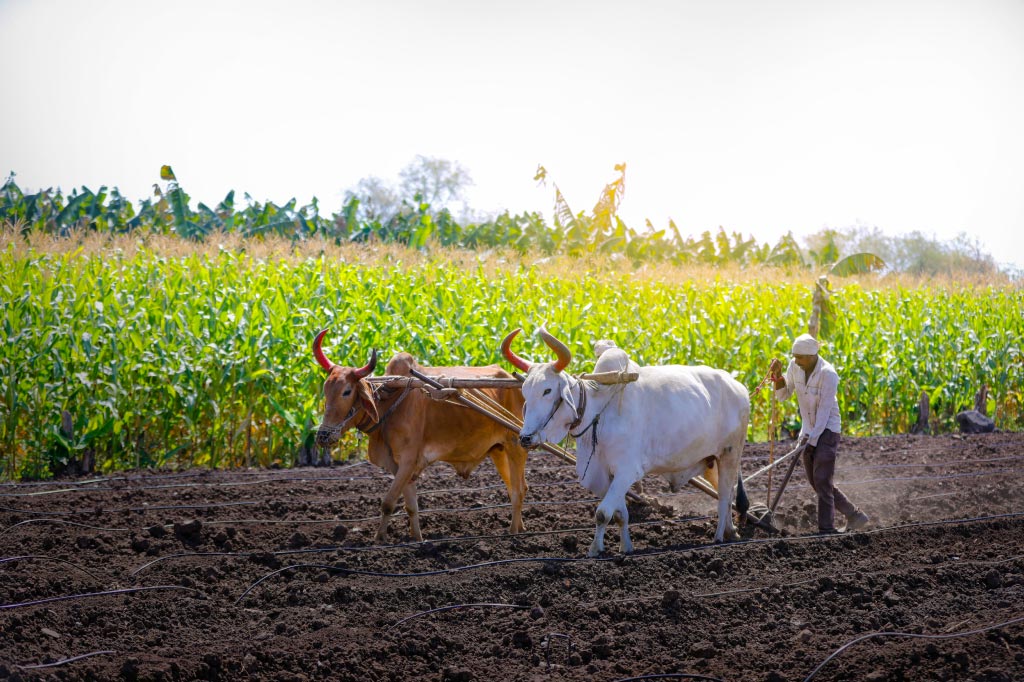Organic Farming
Introduction:
In an era where sustainability is becoming increasingly crucial, organic farming stands as a beacon of hope for both environmentalists and health-conscious consumers. Unlike conventional agriculture, which relies heavily on synthetic chemicals and genetically modified organisms, organic farming emphasizes natural methods and biodiversity to cultivate crops and raise livestock.
In this article the depths of organic farming, exploring its principles, practices, benefits, and challenges. From understanding the foundations of organic agriculture to unraveling its impact on the environment and human health, let’s embark on a journey to discover the essence of sustainable farming.

Understanding Organic Farming:
At its core, organic farming is a holistic approach to agriculture that prioritizes soil health, biodiversity, and ecological balance. The fundamental principles of organic farming include:
Soil Health:
Organic farming prioritizes the health and vitality of the soil. Farmers focus on nurturing soil organisms and maintaining its structure through practices such as crop rotation, composting, and the use of organic fertilizers.
Biodiversity:
Organic farms promote biodiversity by cultivating a variety of crops and creating habitats for beneficial insects, birds, and other wildlife. This helps to improve ecosystem resilience and reduce the dependence on synthetic pesticides.
Avoidance of Synthetic Chemicals:
Unlike conventional agriculture, organic farming prohibits the use of synthetic pesticides, herbicides, and fertilizers. Instead, farmers utilize natural alternatives such as crop rotation, cover crops, and biological pest control methods.
Animal Welfare:
In organic livestock farming, animals are raised in accordance with strict welfare standards. They are provided with access to outdoor areas, organic feed, and veterinary care, while the use of antibiotics and growth hormones is limited or prohibited.
These principles form the foundation of organic farming, guiding farmers in their efforts to produce food in a sustainable and environmentally friendly manner.


Benefits of Organic Farming:
The benefits of organic farming are numerous and encompass environmental, health, and socio-economic aspects:
Environmental Sustainability:
Organic farming practices promote soil health, reduce erosion, and enhance biodiversity. By avoiding synthetic chemicals and emphasizing natural fertilizers and pest control methods, organic farms help protect water quality, conserve energy, and mitigate climate change.
Healthier Food:
Organic produce is free from synthetic pesticides, herbicides, and genetically modified organisms (GMOs). Studies have shown that organic fruits, vegetables, and grains often contain higher levels of essential nutrients, antioxidants, and beneficial compounds compared to conventionally grown counterparts. Additionally, by avoiding exposure to harmful chemicals, consumers can reduce the risk of pesticide residues in their food.
Support for Rural Communities:
Organic farming can contribute to the vitality of rural economies by creating opportunities for small-scale farmers and supporting local food systems. Organic agriculture often emphasizes fair trade practices and direct relationships between farmers and consumers, which can help farmers receive fair prices for their products and strengthen community connections.
Enhanced Soil Health:
Organic farming practices such as crop rotation, cover cropping, and the use of organic fertilizers improve soil fertility, structure, and microbial diversity. Healthy soils not only support plant growth but also increase the soil’s ability to retain water, reduce erosion, and sequester carbon dioxide from the atmosphere, thus mitigating climate change.
Reduced Chemical Exposure:
By avoiding the use of synthetic pesticides and fertilizers, organic farming reduces chemical exposure for farmers, farm workers, and nearby communities. This helps to protect human health and minimize the negative impacts associated with pesticide use, such as respiratory problems, neurological disorders, and water contamination.
Preservation of Biodiversity:
Organic farms provide habitats for a wide range of plant and animal species, including pollinators, birds, and beneficial insects. By promoting biodiversity and ecological balance, organic farming helps to support natural ecosystems and conserve native species, which are essential for maintaining ecosystem resilience and adapting to environmental changes.

Challenges and Considerations:
Despite its numerous benefits, organic farming also faces several challenges and considerations:
- Transition Period: Converting conventional farmland to organic production requires a transition period during which synthetic inputs are phased out and organic practices are implemented. This transition can be financially and logistically challenging for farmers, particularly during the initial years.
- Yield Variability: Organic farming may experience yield variability, especially during the transition period and in regions with challenging environmental conditions. While organic practices can improve soil health and resilience over time, farmers may need to adapt their management strategies to optimize yields.
- Market Access and Certification: Obtaining organic certification can be a rigorous process involving compliance with strict standards and documentation requirements. Additionally, accessing organic markets and securing fair prices for organic products can pose challenges for farmers, particularly small-scale producers.

Conclusion:
Organic farming represents a paradigm shift in agriculture, offering a sustainable alternative to conventional practices. By prioritizing soil health, biodiversity, and ecological balance, organic farmers contribute to environmental conservation, human health, and rural livelihoods.
As consumers become increasingly aware of the impact of their food choices, the demand for organic products continues to grow. By supporting organic farming, individuals can contribute to a more sustainable and resilient food system, ensuring a greener future for generations to come.